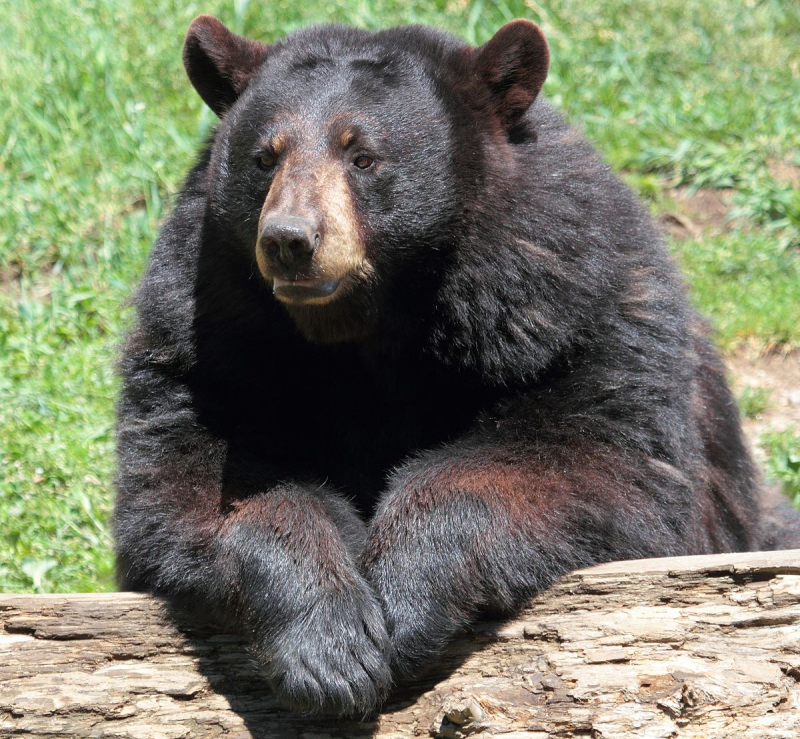Bears
Given their size, moose have very few natural predators in the wild. One of the few predators of moose that eat moose is the Grizzly Bear and American Black Bear.
The American Black Bear is the first of them. These little bears occasionally assault and devour moose in the wooded areas where they cohabit, even though they do not actively seek them out. It's only a matter of chance and appetite for the omnivorous Black Bear, who can and frequently does coexist with adjacent moose and other animals. A hungry bear has to eat, and a big moose is an appealing prey.
However, Grizzlies are larger than moose and have appetites to match their size. As a result, if a moose is seen grazing nearby, grizzly bears can and frequently do attack them.
Even though the moose's defensive choices are limited, fully grown animals still retain their antlers and their size, which can protect them from attacks by younger, smaller bears. A hungry grizzly may keep an eye out for older animals that may be injured or just weaker because moose don't often live in groups. This is an excellent approach for them because an adult moose in fear can move at speeds of almost 35 miles per hour. However, calves are particularly vulnerable since up to 50% of them succumb to wolf or bear attacks before they become 6 months old. However, up to the age of 18 months, their moms would make an effort to safeguard them. The mother will chase her calves away at this stage when she goes into estrus, leaving them to fend for themselves. Although the good news for moose is that their survival rate is much greater once they reach adulthood at approximately 4 years of age, up to 95% in fact, until then the calves are still quite an appealing target for hungry bears and wolves.








